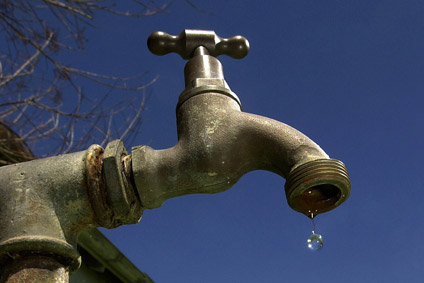Bulawayo councillors have rejected a proposal by the city’s engineering department to extend the current 120-hour water-shedding schedule to 144 hours.
The councillors explained that residents in many high-lying suburbs have not been receiving water since the introduction of the water-shedding schedule, and increasing the hours would only exacerbate the problem.
The deliberations occurred during a discussion on the Future Water report, in which the engineering department proposed moving to a 144-hour schedule due to the continued reduction of water levels in the supply dams.
The government recently announced that it would not declare Bulawayo a water crisis area, attributing the current problems to poor management rather than a lack of water.
Councillors argued that low water pressure, combined with the reduced hours of supply, means water does not reach many households. Therefore, extending the water-shedding period would remove any hope of receiving water.
Ward 17 Councillor Sikhululekile Moyo stated that her community had not had water for the past month, and such a shift would have a devastating impact on residents.
“The proposal to move from 120 to 144 hours would completely disadvantage those who are already not receiving water, which includes many areas of the city. As it stands, some places aren’t getting water under the current schedule, and extending it means no water at all for us,” she said.
“Unless alternative measures are implemented, Pumula has not been getting water during the current 120-hour period, so moving to 144 hours means we won’t get water at all.”
Councillor Rendani Moyo agreed, stating that such a decision would condemn residents in high-lying areas. He called for considering alternative measures before resorting to such drastic action.
“We cannot extend to 144 hours. We are already facing numerous social problems and service delivery concerns. Was this suggestion thoroughly thought through? Is this an admission of defeat? Are there no other interventions we can explore?” he asked.
“In a previous presentation, the relevant department outlined several interventions to improve the water situation. Moving to 144 hours should be a last resort, once we’ve exhausted all other options. Some areas in my ward haven’t received water since December. If we proceed with this, we will be condemning those residents.”
City Mayor David Coltart explained that rapidly decreasing dam levels drove the proposal.
“We are now using water reserves that were meant for the next two months, which highlights the severity of the crisis we are facing. We are on the verge of a potential catastrophe, with dam levels critically low and high evaporation rates due to soaring temperatures,” said Councillor Coltart.
“We cannot blame the engineering department for this situation. Everyone needs to understand how serious this is. Once Upper Ncema is decommissioned, Lower Ncema will soon follow, and levels will drop further.”

